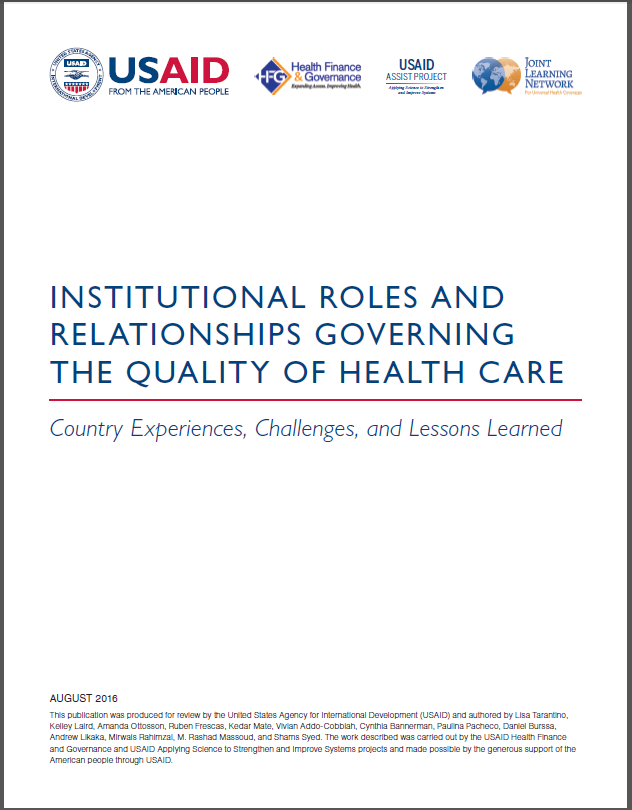Institutional Roles and Relationships Governing the Quality of Health Care
Categories: Governance and Leadership, Publications, Universal Health Coverage, Where We Work
 Resource Type: Report
Resource Type: Report
Authors: Lisa Tarantino, Kelley Laird, Amanda Ottosson, Ruben Frescas, Kedar Mate, Vivian Addo-Cobbiah, Cynthia Bannerman, Paulina Pacheco, Daniel Burssa, Andrew Likaka, Mirwais Rahimzai, M. Rashad Massoud, and Shams Syed
Published: August 2016
Resource Description:
Improving the quality of patient-centered health services is paramount to delivering on the promise of universal health coverage (UHC). Many countries seek to expand access to affordable care; but ensuring quality of care during and after significant UHC reforms is recognized as a key challenge (JLN 2013). In a survey of over 100 government officials from nine Joint Learning Network (JLN) member countries, the need to improve the quality of health care emerged as a priority—in particular, creating the institutional architecture (roles, responsibilities, and relationships) needed for the governance of quality.
This report documents recent efforts by the USAID and the JLN, with the active participation from the WHO and a dozen countries from Asia, Africa, Europe, and Latin America, to tally key challenges and successes. USAID’s Health Finance and Governance (HFG) and Applying Science to Strengthen and Improve Systems (ASSIST) projects have worked closely with JLN member countries to explore this inquiry into the challenges and successful experiences of governing quality at the national and subnational levels. HFG and ASSIST conducted a literature review of 25 country experiences and qualitative interviews with stakeholders from 18 countries, then worked with the JLN to offer countries with a high interest in improving governance to ensure quality care the opportunity to meet and share learnings in Dar es Salaam, Tanzania, in March 2016. This report is the result of that meeting between representatives of 12 countries and development partners.



